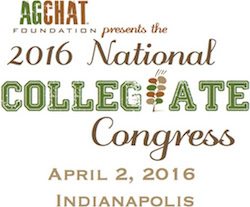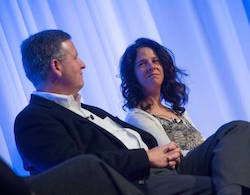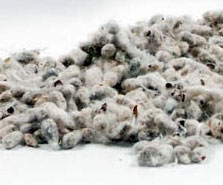 Buying extra virgin olive oil from olives grown in Florida may soon become a reality. Richard Williams is one of 50 growers managing 300 acres of olive groves in the state where his in-laws have been growing citrus for six generations.
Buying extra virgin olive oil from olives grown in Florida may soon become a reality. Richard Williams is one of 50 growers managing 300 acres of olive groves in the state where his in-laws have been growing citrus for six generations.
“Planting olives is not for the faint of heart by any stretch of the imagination. This is so new that we are learning every day,” said Williams, whose wife Lisa helps run Florida Olive Systems, Inc. “But it’s a new opportunity to reinvent ourselves after catastrophic losses to citrus greening.”
With the citrus greening disease decimating citrus crops, causing $7.8 billion in lost revenue for Florida, Williams has been searching for other options. He started by visiting olive growers in Texas, Georgia and California. He also invited experts from Italy, Spain and Greece to visit and share their expertise.
He began in 2012 with 20 acres of Arbequina, Abrosana, and Koroneiki olives. In addition he has 16 olive varieties under observation in containers.
“I looked at consumption the United States, and we are the number three consumers of olive oil in the world,” Williams said. “But I also thought, ‘Can I really compete with the Italians and Greeks who have been producing olive oil for thousands of years?’ That was the same thinking on blueberries and now Florida has a thriving blueberry industry.”
Williams has the right idea, said Jennifer Gillett-Kaufman, a UF/IFAS entomology professor who is leading the study of olive production in Florida. “Imagine buying extra virgin olive oil from olives grown in Florida. That may soon become a reality as we explore olives as a new crop in the state,” she said.
In 1995, Americans consumed 22 million gallons of olive oil; currently we consume approximately 80 million gallons of olive oil and that number is growing, Gillett-Kaufman said. “There is a huge increase and it’s just going up because of the health benefits,” she said.
A team at the University of Florida is helping to explore options as well. Their scientists have planted five olive groves and are exploring different varieties. Some team members are researching pests and insect disease, while other analyze horticulture data. UF is working with researchers in Georgia and Texas, as well as the USDA to discover if olives can become a viable crop in Florida.
Olive groves offer another benefit to the state, as the crop uses a third of the water and half of the nutrients and fertilizer of citrus. That, combined with the success of the oil produced so far, has created a lot of excitement.
“The extra virgin olive oil that we produce has been independently tested and shown to contain some exciting anti-inflammatory properties that are apparently not found in all olive oils sold,” he said. “We want to responsibly study this, let people come in and see what we are doing. We need more people to plant responsibly, put out test groves and use the University of Florida to provide the science and other assistance.”
 World Food Championships! Learning about this got my blood pumping and my mouth salivating. Best of all, it’s moving right next door to ZimmComm World Headquarters. It’s on my calendar. I want to go and blog about food competition as the fruits of our farmers provides the base for what’s cooking. It sounds like a #FoodPorn Festival doesn’t it? Here are some details.
World Food Championships! Learning about this got my blood pumping and my mouth salivating. Best of all, it’s moving right next door to ZimmComm World Headquarters. It’s on my calendar. I want to go and blog about food competition as the fruits of our farmers provides the base for what’s cooking. It sounds like a #FoodPorn Festival doesn’t it? Here are some details.










